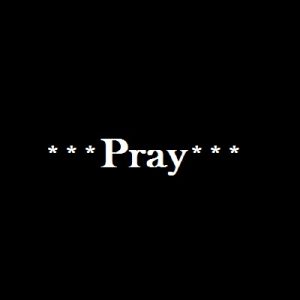
Prayer is a central aspect of many religious traditions and is often defined as a form of communication or communion with a higher power, typically a deity or divine being.
It is a way for individuals to express their thoughts, feelings, needs, and desires, and to seek guidance, comfort, and support. For many people, prayer is an essential part of their daily lives, serving as a source of strength, comfort, and hope in times of difficulty and a means of offering gratitude and praise in times of joy.
Prayer can take many forms, ranging from spontaneous and informal to structured and formal. Some people prefer to pray silently and reflectively, using their own words to express their thoughts and feelings, while others prefer to use specific prayers or liturgical texts.
There are also those who prefer to pray through song, meditation, or ritual, using these practices as a way of connecting with the divine.
For many people, prayer is a personal and individual act, but it can also be performed with others in a group setting. Group prayer can take the form of communal worship, such as a church service, or a more informal gathering of friends or family.
Group prayer can be a powerful experience, providing a sense of community and support, and can be especially meaningful in times of difficulty or loss.
The act of prayer itself is often seen as having a transformative effect on the individual. Through prayer, people can quiet their minds, calm their spirits, and connect with a sense of something greater than themselves.
It can also serve as a means of releasing negative emotions, such as anger, fear, or anxiety, and can help to foster a sense of inner peace and tranquility.
In addition to its personal and individual benefits, prayer can also serve a social and communal purpose. Through prayer, individuals can come together to share their hopes, fears, and desires, and to offer support and comfort to one another.
Prayer can also be a means of advocating for social justice and bringing attention to the needs of marginalized or oppressed communities.
Ultimately, the meaning and purpose of prayer is shaped by the individual’s personal beliefs and spiritual practices. For some, prayer is a way of connecting with a higher power and seeking guidance, comfort, and support. For others, it is a way of expressing gratitude and praise, or a means of fostering inner peace and tranquility.
Regardless of the form it takes or the reasons behind it, prayer remains an essential aspect of many religious traditions, serving as a source of comfort, hope, and connection for millions of people around the world.
Here are 8 Types of Prayer!
There are numerous varieties of prayer, and the particular styles of prayer might differ significantly between various religious traditions. Several popular forms of prayer include:
- Petitionary Prayer: A type of prayer that involves asking for specific help or guidance, such as for healing, protection, or provision.
- Thanksgiving Prayer: A type of prayer that involves giving thanks and expressing gratitude for the blessings and gifts in one’s life.
- Intercessionary Prayer: Intercessional prayer is a style of prayer in which one intercedes for the needs of others, such as their protection, healing, or general well-being.
- Contemplative Prayer: A type of prayer that involves quiet reflection, meditation, and contemplation, with the goal of fostering a deeper connection with God or a higher power.
- Liturgical Prayer: A type of prayer that follows a specific form or structure, such as the prayers used in worship services or religious rituals.
- Spontaneous Prayer: A type of prayer that is unstructured and spontaneous, arising from the heart and expressed in one’s own words.
- Mantra Prayer: A type of prayer that involves repeating a word or phrase, such as a holy name, in order to focus the mind and cultivate a state of inner peace.
- Chanting Prayer: A type of prayer that involves repetitively singing or chanting a religious text or song.
These are just a few examples of the many different types of prayer that exist in various religious traditions. The specific forms of prayer can vary greatly between traditions, and many people find that a combination of different types of prayer works best for them.







Be the first to comment